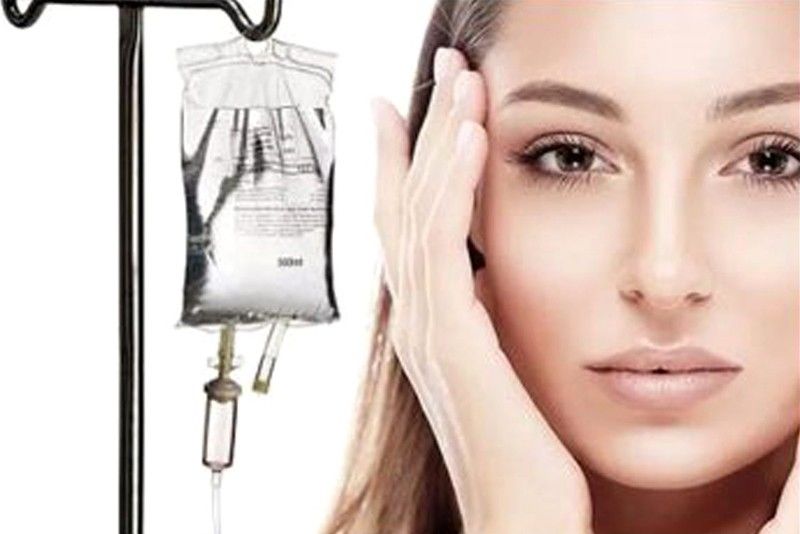Dr. Oz calls it the “superhero of antioxidants.” Mark Hyman labeled it the “mother of all antioxidants.” Dr. David Perlmutter pioneered its use for Parkinson’s disease, while Dr. John Richie Jr., a professor of public health sciences and pharmacology, says glutathione is the most important molecule in all biology and that it is crucial for maintaining a healthy immune system.
Professor Richie also says that the ability of our body’s defenses — our T cells and lymphocytes — to respond when faced with challenges like disease, depression or health-related emergencies, depends on whether there’s an adequate amount of glutathione in our cells for immune regulation.
He explains that glutathione inactivates cell-damaging reactive free-radical molecules, which is why it has an anti-aging effect as well. Naturopaths advertise it heavily as the secret to prevent aging, cancer, heart disease and dementia, particularly Alzheimer’s and autism.Dr. Ted Lain, a dermatologist from Texas, considers it a potent antioxidant that detoxifies the blood by acting as a scavenger for free radicals and decreasing oxidative stress, which is very good for a healthy body.
According to Dr. Lain, glutathione also decreases the activity of the enzyme that produces skin pigments that darken the skin. Hence, it is a skin lightener. He also says that glutathione decreases the skin inflammation that leads to pigmentation.
Dr. Seemal Desai, a board-certified dermatologist and president of the Skin of Color Society, says glutathione is an antioxidant that has been used around the world for a number of indications, and that in many cultures, lighter skin is oftentimes culturally associated with beauty.
The reason why patients seek treatments to lighten skin is because they equate lighter skin with beauty, higher social stature, greater interpersonal relationships and chances for a better job and future. But Dr. Desai tells us that glutathione is metabolized and broken down very quickly in the gastrointestinal (GI) tract, so that by the time you ingest oral glutathione, the majority of it is no longer available to be absorbed into the bloodstream since it has already been degraded in the GI tract. Hence, intravenous glutathione was developed so that the serum concentration stays high and it can bypass GI metabolism, hence making it more effective. Researchers also mentioned that people with the following diseases have low levels of glutathione: HIV patients, diabetes type 2, Parkinson’s disease and other neurodegenerative diseases.
There are already studies done and still being done for other indications not related to beauty, like for chronic fatigue syndrome. They found that a decrease in glutathione is associated with an increase in ventricular lactate levels, a biomarker for fatigue.
Another study shows that glutathione might be able to combat problems associated with helicobacter bacteria and that it may eventually be considered a prebiotic supplement. It is also currently used to minimize the side effects of chemotherapy like cisplatin for neurotoxicity. In the largest and most comprehensive clinical trial of glutathione done at the University of Washington, the only reported side effects were increased gas, loose stools and flushing (https://www.ncbi.nihgov/pmc/articlesPMC31623771), although I would consider it a small-scale study because the subjects included only 40 patients and oral glutathione but not the intravenous form. Other four studies on glutathione include: topical cream application (30 healthy Filipinos by Watanabe et al.) oral capsules (60 medical students by Arjinpathana & Asawanonda), oral buccal lozenges (30 healthy women by Handog et al.) and intravenous (50 healthy Pakistani women by Zubair et al.) showed melanin index reduction and showed no significant adverse effects for the intravenous injection (liver dysfunction in 32-percent (eight) patients and anaphylactic shock in one patient).
Here in the Philippines there were reported cases of Toxic Epidermal Necrolysis and Steven Johnson Syndrome, both of which are life-threatening dermatologic emergencies. However, since it is a common practice to give a mixture of three more substances (vitamin C, human placenta, collagen) in the injection, I cannot really say that it was caused directly by glutathione. It could be one of the other substances or a combination of substances that led to these fatal outcomes. Other reported side effects are derangements in thyroid function, suspected kidney dysfunction, and severe abdominal pain.
My point here is that we really cannot make a final conclusion against or for glutathione since we don’t have sufficient studies to back it up. There is a lack of robust evidence to changes in health outcome and its possible complications, such as randomized, double-blind, placebo-controlled trials. There are also no established data currently available that could serve as a scientific framework for supplementation, blood levels, disease or complications.
And most of all, with questionable manufacturing processes and dubious practicing injectors (gluta can be administered by anyone like the IV Drip fad), the risk is tripled. These include infection that could lead to sepsis (a fatal form of infection); wrong injection technique could cause an air embolism that could lead to sudden death, transmission of hepatitis B and HIV from unauthorized injectors; plus, the counterfeiting of glutathione has been reported, which can lead to the use of non-sterile preparations that can cause severe complications.
So be very careful if you decide to use intravenous glutathione and only go to board-certified doctors.
Read more at https://www.philstar.com/lifestyle/health-and-family/2019/08/27/1946585/real-score-glutathione#3xWP5cqbImBGDpiB.99
Don't forget to opt-in to Our Healthy Living Society and get 3 free gifts while receiving the latest information on health, well-being and groundbreaking news about natural nutrition.































